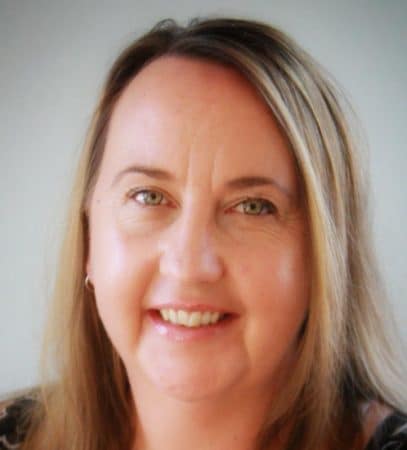
Paula Jessop
Many autistic people strongly dislike the puzzle piece as a symbol for autism, writes Paula Jessop, Altogether Autism’s former autistic advisor.
THE PUZZLE piece as a symbol for autism was originally used by the National Autism Society in UK in 1963. Time went by and it was used to represent autism by an organisation in America, Autism Speaks.
Autism Speaks then went on to use the puzzle piece in very big Autism Awareness campaigns in America, leading to the puzzle piece being adopted as ‘the symbol’ for autism.
But the problem for many autistic people, is that Autism Speaks campaigns were particularly negative and problematic to autistic people.
Autism awareness campaigns historically have been modelled on campaigns to raise awareness of diseases, illnesses like cancer. Early autism awareness promotion was based on organisations and parents’ belief that autism is a disease. A tragic and terrible one.
Autism Speaks was the biggest organisation to approach autism awareness from this perspective that autism is a disease requiring fixing, curing. Therefore, their campaigns were the most hurtful, upsetting and offensive to autistic people.
In 2006, as part of Autism Speaks campaigning for Autism Awareness, the organisation ran a range of advertisements on television and created a short film about autism that featured the organisation’s leader at the time talking about her desire to kill herself and her autistic daughter, via driving off a bridge.
She spoke of these urges in the film, while her daughter was in the room and could hear what she was saying. Autistic people continue to be horrified there was ever a time it was seemingly socially acceptable for people to discuss killing us while we listened.
Another advertisement featured comments that autism ruined families and was almost a curse to families.
Their campaigning held a lot of very negative ideas about autism, that autistic people found very offensive and unfair.
So, due to this, and a whole range of other issues with Autism Speaks, autistic people find the puzzle piece a reminder of an organisation that spent years running very public campaigns in America that framed autism as a tragic disease. To autistic people, the puzzle piece represents negativity about autism, not a positive perspective of autism.
A second issue for autistic people, is the puzzle piece also represents viewing us as ‘puzzling’ or a ‘mystery’. Often terms used in the past referring to autism. For autistic people this is problematic, as we don’t wish to be viewed as akin to a puzzle that can’t be worked out.
Autistic people tend to use a rainbow infinity symbol, as connected to the neurodiversity perspective. For autistic people, if they see an organisation or parents using the puzzle piece, and they know the history of the puzzle piece, they will assume an organisation does not consult with actual autistic people and may find that problematic. Or they may assume an organisation disregards their feelings towards the symbol and find that very disrespectful.
Autistic people on the whole, desire a shift in perspective of what autism awareness is about.
For many years adults have openly, publicly discussed their desires for autism awareness to shift to an approach aimed at creating acceptance for us in society. Continuing to ignore our wishes, to use symbols which may remind us of our discrimination in society or that people sometimes do kill us because of our autism, IS disrespectful.
Words and symbols might not seem to mean much, but they represent a perspective which increases discrimination against us in society. It’s time to shift to autism awareness, as well as throwing away symbols from an era gone by that was not kind to autistic people.
- Paula Jessop is an autistic woman who advocates for ‘radical acceptance’ of autism as a valid type of neurological difference and supporting autistic people through strengths-based methods.
- This article first appeared in the Altogether Autism Journal, Issue 1, 2019


